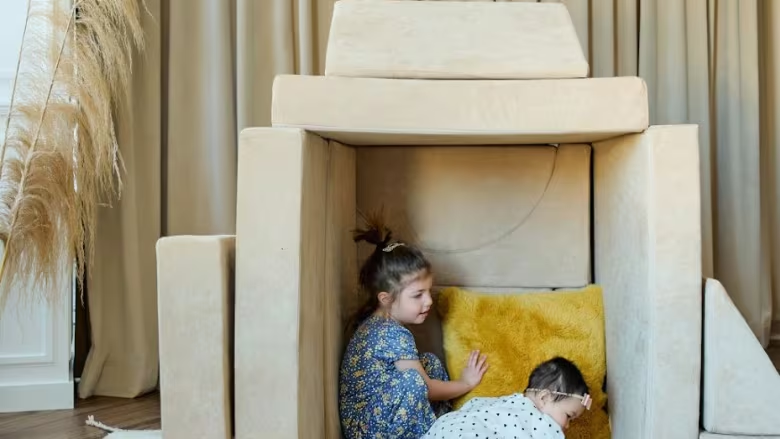
When everything pictured was made in China, the Canada Border Services Agency didn't apply any tariffs. But now that the majority of the product is made in Canada, the CBSA says tens of thousands in tariffs are due. (Submitted by Sara Feldstein)
Barumba Play, a Canadian company specializing in children's toy couches, is encountering unexpected challenges related to import tariffs after relocating its production to Canada. Despite shifting the majority of its manufacturing operations back home, Barumba Play is now facing significant import tariffs on a specific component of its couches, resulting in unexpected financial strain.
Initially, Barumba Play imported its toy couches entirely from China, benefiting from the classification of these products as children's toys, exempting them from tariffs upon importation into Canada. However, in 2023, the company decided to move its manufacturing operations to Canada, aiming to streamline production and support local manufacturing.
The company successfully transitioned most of its manufacturing processes to Canada, except for one component: cloth slipcovers. Due to certain manufacturing limitations, Barumba Play continued to produce these slipcovers in China. However, in an unforeseen turn of events, the Canada Border Services Agency (CBSA) reclassified these slipcovers, no longer considering them as part of a children's toy but rather as textiles subject to import tariffs.
This reclassification came as a surprise to Sara Feldstein, the founder of Barumba Play, who had sought advice from business advisors and industry experts before relocating production to Canada. Contrary to her expectations, the slipcovers were now being categorized differently by the CBSA, resulting in unexpected financial implications for the company.
The CBSA's decision to reclassify the slipcovers has led to Barumba Play owing a substantial amount in retroactive tariffs, with estimates ranging from $47,000 to $70,000. Despite the company's intention to appeal this decision, the current regulations require them to pay the assessed tariffs upfront, adding further financial strain.
Furthermore, the appeals process is expected to take a significant amount of time, potentially close to a year, during which Barumba Play must navigate the financial challenges posed by the retroactive tariffs. This situation highlights the complexities and uncertainties surrounding tariff classifications and their impact on businesses, particularly those involved in international trade.
While businesses have the option to appeal tariff decisions, the requirement to pay assessed tariffs upfront, even during the appeals process, poses practical challenges for companies like Barumba Play. This policy, according to experts, can significantly impact businesses' financial stability and operational continuity, particularly for smaller enterprises.
Despite these challenges, Barumba Play remains committed to resolving the issue and continuing its operations. However, the uncertainty surrounding the outcome of the appeals process has made the company hesitant to invest in further expansion or growth initiatives.
Ultimately, Barumba Play's experience underscores the importance of thorough research and understanding of regulatory requirements before making significant operational changes, such as reshoring manufacturing operations. The unexpected reclassification by the CBSA serves as a cautionary tale for businesses navigating the complexities of international trade regulations and tariff classifications.















